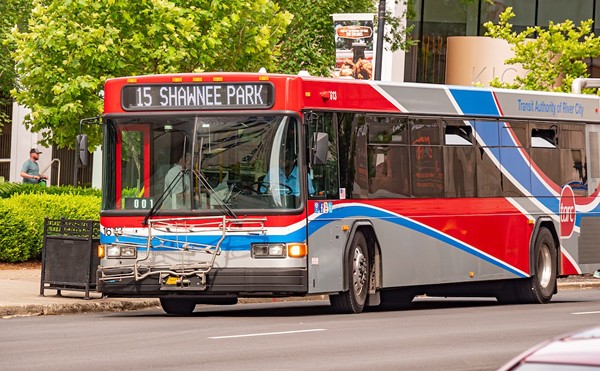After starting a new job at the University of Louisville, it took a few months for Kaila Story to get used to the city. Having lived in Philadelphia, she was used to a more diverse urban setting, but the assistant professor was willing to give her new home a chance.
“It didn’t remind me of the South so much until I met the people,” says Story, an endowed professor of race, gender and sexuality studies, adding that she was particularly pleased with the fact that she quickly was welcomed into both black and gay social circles. But then something happened to change her perception: “I got called a nigger, and since then I’ve pretty much seen [the city] as being racist.”
Last year while visiting Woody’s Tavern, a gay bar near campus, Story, who is openly gay, and a group of mostly black LGBT friends were playing pool. Two dogs charged into the room barking and Story, fearful, jumped on the table, prompting the man with the dogs to begin lambasting her, saying he didn’t like “big girls” on his pool table.
An argument ensued and the altercation spilled into the street. The man with the dogs, who they claim was the bar’s owner, David Norton, allegedly followed them outside and hurled epithets, calling them “cunts,” “bitches,” “niggers” and other slurs.
In the wake of the exchange, Story was shocked and disappointed that local LGBT activists were not outraged about the incident — there were no protests, no boycotts, not even a letter to Norton, who also owns Magnolia Bar & Grill in Old Louisville. When LEO Weekly inquired about the incident last year, Norton denied the whole thing and said he wasn’t even at Woody’s that night. A day after the altercation, however, a bartender said Norton was indeed at the tavern with his dogs when the incident occurred. Several attempts to contact Norton for this story were unsuccessful.
“People were paralyzed and didn’t know what to do because it was primarily a race issue within the LGBT community,” Story says. “The reason why he felt like he could deal with us a certain way was because we were black. It’s something the LGBT community doesn’t really want to talk about.”
In stark contrast to that complacency the LGBT community became irate last summer when a local McDonald’s employee accosted two white gay men with homophobic slurs. Due to a protest and legal assistance from the American Civil Liberties Union of Kentucky, that situation resulted in the fast food chain requiring diversity training at 30 area restaurants and shelling out a $2,000 settlement for the two plaintiffs.
Unnerved by the disparity, one local gay rights activist recently reignited discussion about the Woody’s incident, writing a public letter to Norton.
“I would’ve liked to have seen some greater response to what happened at Woody’s,” says Brian Buford, director of the university’s LGBT Services office. “I wished people would have boycotted. Individuals did, but in terms of an organized effort, there wasn’t one.”
In observance of the one-year anniversary of the incident, Buford wrote and posted a letter on the website of the Fairness Campaign, the city’s chief gay rights organization. The letter began circulating and got the attention of the Fairness Campaign’s new director, Chris Hartman, who felt compelled to address what he called a missed opportunity last year.
“Discrimination is discrimination. Any sort against any people is absolutely unacceptable and we will not allow it to go silently by,” says Hartman, who is now urging Norton to apologize. “It’s deplorable to continue to not offer an apology.”
Although Hartman agrees not enough attention was brought to the Woody’s incident initially, he says the organization now is determined to resolve the matter and move forward.
Hartman has since met with Story and is in the process of drafting a letter, which he plans to deliver to Woody’s this week.
Addressed to Norton, the letter once again asks for a public apology and a discussion on how to “repair relationships that have been damaged by this incident.”
Though he would not commit Fairness to any action, if meetings with Norton do not materialize he says a formal boycott of the bar is possible.





